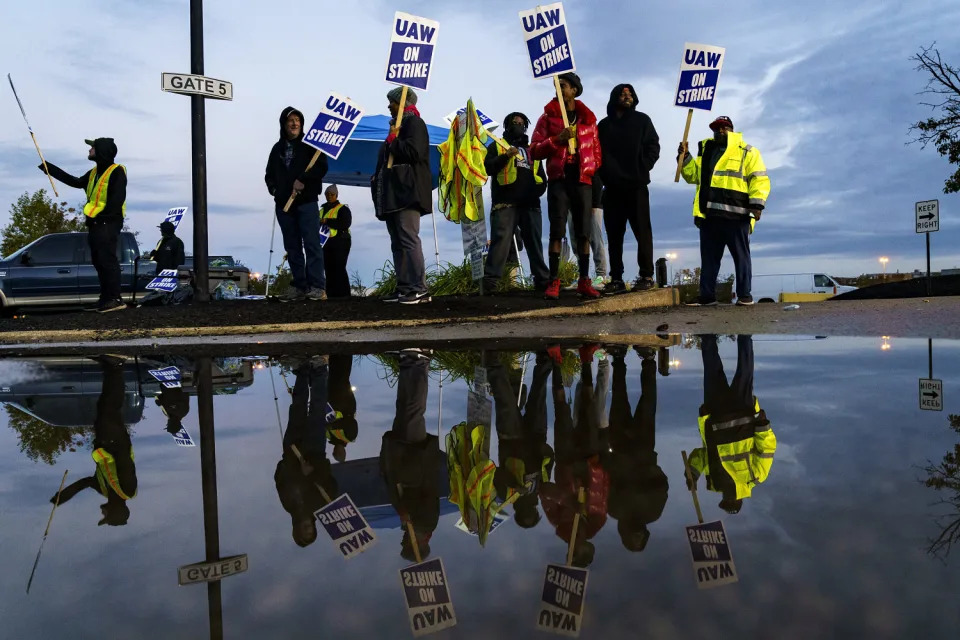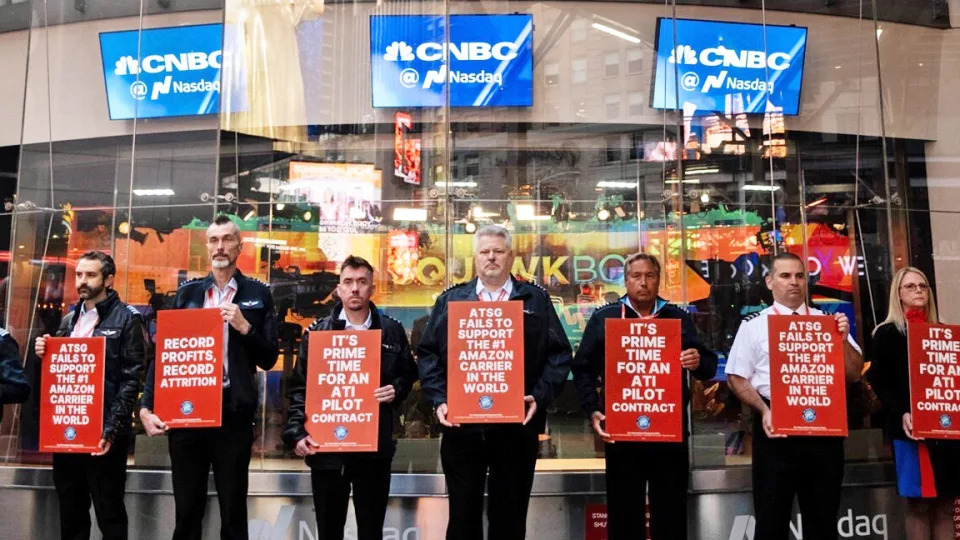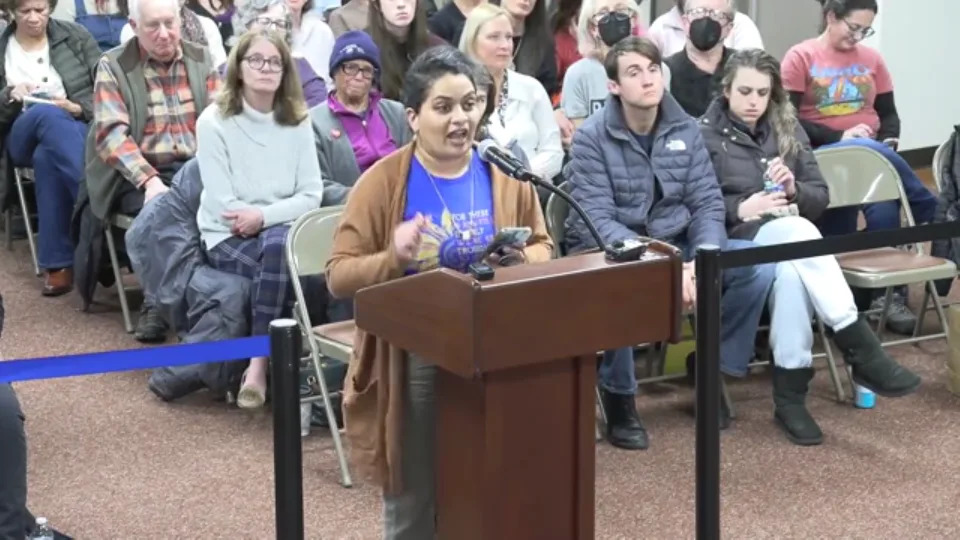• BNNBLOOMBERG

In an escalating conflict with its workforce, member-owned cooperative REI finds itself in the crosshairs of unionization efforts. Employees at multiple locations have cast their vote to join the union, thereby challenging the company’s position. However, they face allegations of obstruction from the company, a charge that casts a shadow on the cooperative’s reputation.
Accusations of Anti-Union Tactics
REI, a renowned retailer in the camping and outdoor sports equipment industry, has been alleged to have violated U.S. labor law at eight retail stores since their unionization last year. Workers from New York, California, Chicago, and Boston have lodged a total of 80 complaints with the U.S. National Labor Relations Board (NLRB), seeking to compel the company to negotiate with their respective unions. The complaints assert that REI has retaliated against pro-union workers, restructured job roles, and altered working conditions, all without union consultation. Furthermore, the company is accused of stalling the bargaining process with unions that have emerged victorious in elections at the stores.
Resistance Against Unionization
During a mandatory meeting at a Manhattan REI store last year, a manager highlighted what he termed ‘serious red flags’ regarding the union’s intent to organize the company’s workforce. Notably, the manager pointed out a decline in union membership and revenue. He compared these statistics unfavorably to REI’s significant contributions to social impact, such as their $6.3 million donation to nonprofit partners in 2021. However, some employees view the union as a social impact organization in its own right, believing their unionization efforts align with REI’s values.
Unionized Workers Stand Firm
Despite these challenges, unionized workers remain steadfast in their pursuit of fair treatment and respect. They have lodged nationwide unfair labor practice charges against REI, alleging bad faith bargaining practices, unilateral changes in the workplace, and a pattern of anti-union behavior. These charges, filed with regional NLRB offices, reflect the workers’ commitment to their cause and their determination to challenge the company’s alleged opposition to their unionization efforts.
REI fostered a progressive reputation. Then its workers began to unionize
July 6, 2023

A pedestrian walks by REI's flagship store in New York, where last year workers formed the company's first union.Spencer Platt/Getty Images
A position at REI was the first and only retail job Claire Chang says she ever considered taking.
A shopping mecca for outdoor enthusiasts, the retailer had cultivated a progressive reputation: promoting sustainability, famously closing on Black Friday to encourage people to play outside, giving workers a paid four-week sabbatical after 15 years and running as a co-op co-owned by its shoppers.
"I mean, we all started working at REI because of its values," says Chang, a visual presentation specialist who has been at the flagship store in New York's SoHo neighborhood for five years.
Now, she and hundreds of other REI workers find themselves at odds with their employer over their efforts to unionize.
After health and safety worries during the COVID-19 pandemic, followed by furloughs and job cuts, Chang's team in SoHo became REI's first union shop in March 2022, in a landslide vote of 88 to 14.
"Despite being a large corporation, we had hopes that REI would be a different type of company, like they say they are," Chang says. "So we were hopeful that they would voluntarily recognize the union and, you know, meet us at the table and negotiate in good faith."
REI did not voluntarily recognize the union.

BUSINESS
Labor's labors lost? A year after stunning victory at Amazon, unions are stalled
Since the SoHo store's vote, seven more stores across the U.S. have unionized; a ninth vote remains too close to call.
Pro-union workers have formally accused the company of breaking labor laws — threatening and intimidating workers, disciplining and firing organizers — which REI denies. More than a year into it, workers and the company are nowhere close to a collective bargaining contract.
Workers push for steady hours and financial stability
REI leaders argue that negotiating with a union would hinder the company's ability to "resolve concerns at the speed the world is moving," as CEO Eric Artz said on a corporate podcast recorded last year before the first union victory.
REI did not make Artz available for an interview but sent NPR a statement instead.
"We respect our employees' rights under the law, including the right to choose whether to be represented by a union," it said. "However, we do not feel a union is necessary for our employees, who enjoy industry-leading wages and benefits, along with multiple outlets through which to provide input to co-op leadership."
REI says it has more than 16,000 employees in 181 stores. In addition to New York, workers have unionized in Berkeley, Calif., Cleveland, Chicago, Boston, Durham, N.C., Maple Grove, Minn., and Bellingham, Wash. They've joined the Retail, Wholesale and Department Store Union or its affiliate, the United Food and Commercial Workers Union.
"We would like essentially a living wage and good hours," says Jezzi Reynolds, who has been a sales associate in the Bellingham store for just over a year.

A shopper walks through REI's store in Seattle in 2018.Elaine Thompson/AP
REI often pays above $15 an hour; shortly after the first union win in SoHo, the chain raised wages nationwide, adding around $1 to $3 per hour for many. But workers say soon a lot of them saw their assigned hours cut. They describe schedules so inconsistent that a part-timer might get 14 hours one week, then 24 hours the next and four the following.
Reynolds and fellow pro-union workers advocate for guaranteed minimum hours and financial stability. Other organizers also mention higher pay as well as grievance and arbitration procedures.
"It got to the point where the workers said, 'You know what — we're going to practice your values for you because you're not living up to them,'" Dave Hein, who works at the Cleveland REI bike shop, said at a news conference in June. "And that is what we're going to put in a contract."
A version of this has played out at other companies that have spent decades building a progressive image as a generous employer. At Trader Joe's, workers have clashed over the pluses and minuses of a union. At Starbucks, the chain's anti-union fight is now a prominent plotline in its American story.
"The idea that a firm that purports to be progressive and sustainable plays hardball with its workers on economic issues, when it's actually doing pretty well, I think it makes it hard to keep that message," says Denise Rousseau, professor of organizational behavior at Carnegie Mellon University.
For 2022, REI reported record sales of $3.9 billion, though overall it registered a loss, in part because of what the CEO called "the largest single-year investment" in employee pay and bonuses.
Raises given, then rescinded at unionized store
When REI bumped up pay nationwide last year, it did so with one exception: the SoHo store, which was the only unionized shop at the time. The company, in its statement, argued that workers, by unionizing, chose to have "all aspects of their pay ... be negotiated at the bargaining table."
The union and the retailer struck a temporary deal: REI would give SoHo workers pay raises. The union would promise not to strike, among other things. The idea was to propel negotiations.

REI has cultivated a reputation as a progressive retailer, including by closing stores on Black Friday to encourage people to #OptOutside.Suzi Pratt/Getty Images for REI
REI, in fact, stood out among retailers with similar labor clashes for just how quickly it and the union began discussing a collective bargaining deal — unlike Starbucks or Amazon, for example, which contested the very results and proceedings of their union elections.
But over months, negotiations at REI stalled.
The union accuses the company of delays — striking out proposals without countering, dragging its feet on producing requested documents. A few bargaining sessions were canceled after REI changed law firms, hiring one that labor advocates view as a more aggressive union buster.
"The collective bargaining process is a lengthy legal one, and the timeline of our negotiations in SoHo and Berkeley is not atypical," REI representatives wrote to NPR, saying the retailer was "engaged in good-faith bargaining" and "will continue to participate fully in the negotiating process."
In June, the union's temporary deal with the company expired. SoHo workers refused to renew it, reclaiming their right to strike. REI then rescinded their raises, reducing their pay.

You may have heard of the 'union boom.' The numbers tell a different story
"It hit a lot of people pretty hard," Chang says of the pay cuts for her SoHo team. "You know, I am pretty much living paycheck to paycheck — a lot of my co-workers are."
The National Labor Relations Board is reviewing more than two dozen claims of unfair labor practices against REI, including claims about its handling of the wage increases and union-contract negotiations. The company says the claims are without merit.
"It is disappointing, you know, that REI has reacted in this manner and continues to double down," Chang says. "The truth is, people really enjoy working at REI. So we want to stay and make it better."
Editor's note: REI is among NPR's recent financial supporters.

















